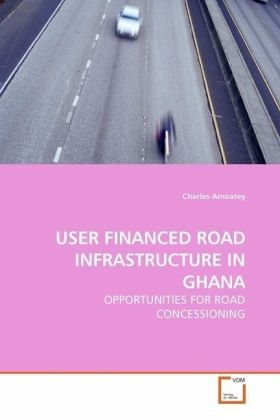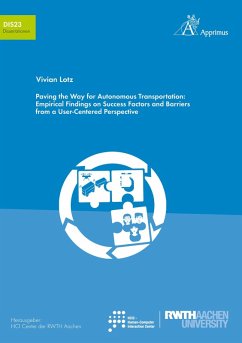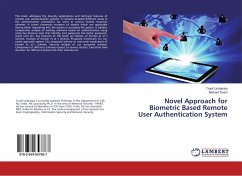
USER FINANCED ROAD INFRASTRUCTURE IN GHANA
OPPORTUNITIES FOR ROAD CONCESSIONING
Versandkostenfrei!
Versandfertig in 6-10 Tagen
39,99 €
inkl. MwSt.

PAYBACK Punkte
20 °P sammeln!
Financing road network life-cycle costs on sustainable basis is one of the most crucial challenges facing many developing countries, as it requires a thorough awareness of road network costs and available sector funds. This thesis has developed a pragmatic cost-revenue model for estimating road network life-cycle costs and expected road revenues. The model calculates performance indicators for measuring the extent to which road users are contributing to the financing of network costs.The findings indicate that road user contributions in Ghana are sufficient to cover only the expected maintenan...
Financing road network life-cycle costs on sustainable basis is one of the most crucial challenges facing many developing countries, as it requires a thorough awareness of road network costs and available sector funds. This thesis has developed a pragmatic cost-revenue model for estimating road network life-cycle costs and expected road revenues. The model calculates performance indicators for measuring the extent to which road users are contributing to the financing of network costs.The findings indicate that road user contributions in Ghana are sufficient to cover only the expected maintenance costs and three-quarters of estimated network life cycle costs. User contribution covers only one-half of the total costs when the costs of clearing existing maintenance backlogs are included. By comparing user contributions and actual allocated domestic funds, the cost-revenue model shows that nearly half of what users contribute is actually allocated to the road sector. This disparity between road network life cycle costs and available funds is a major development constraint, as needed road improvements cannot be undertaken due to lack of funds or under-allocation of available funds.












